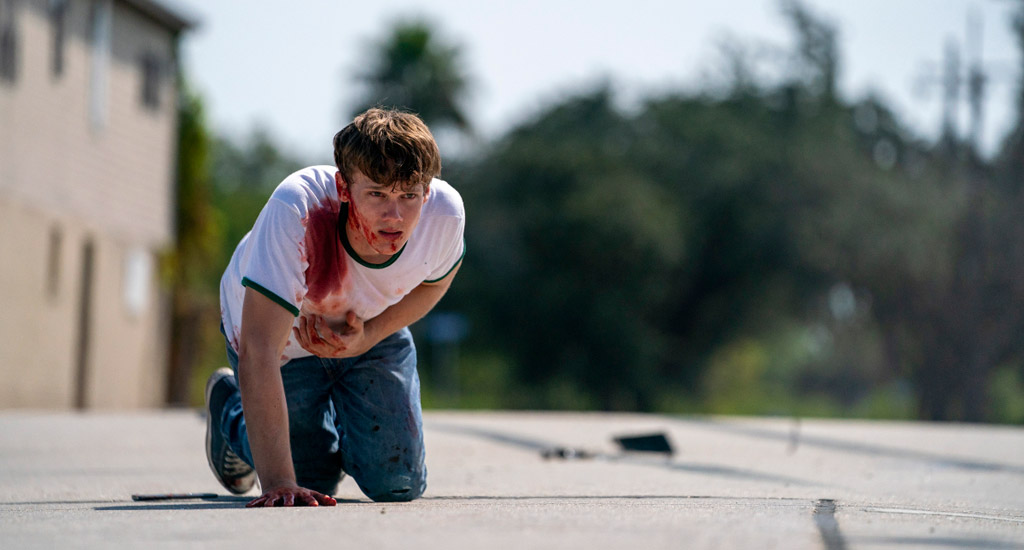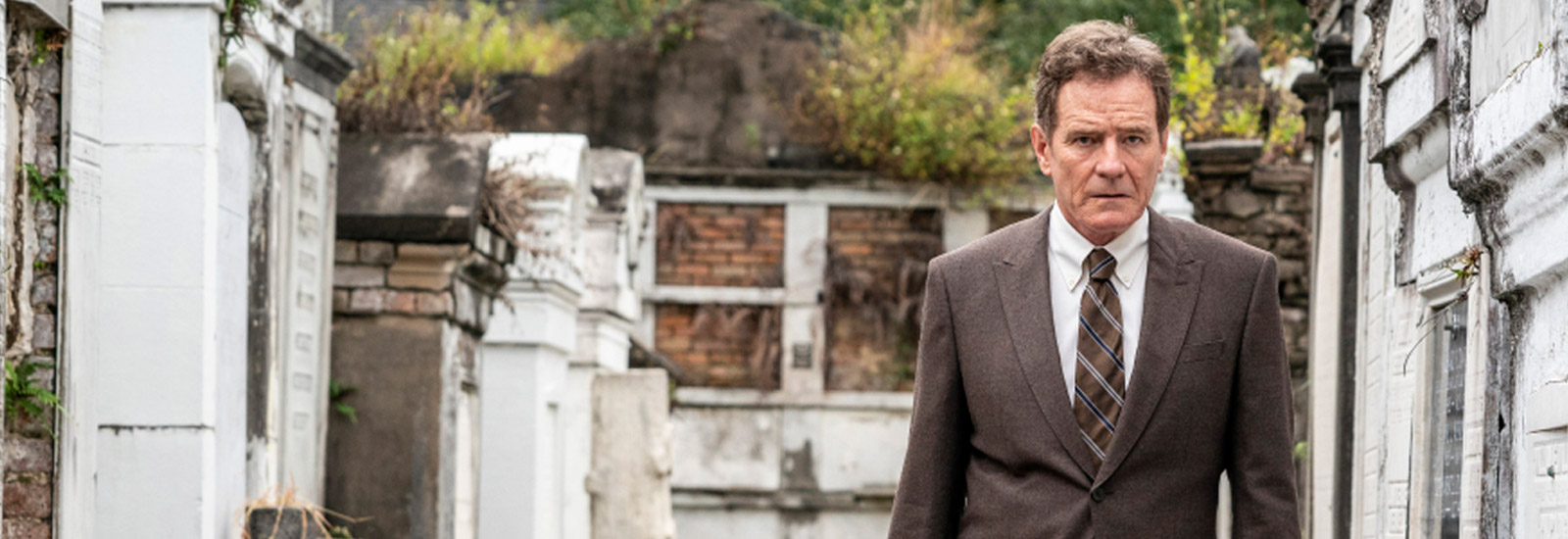Bryan Cranston’s new Showtime limited series, Your Honor, will definitely remind you of several other shows. There are the inevitable comparisons to Breaking Bad, of course, and to be sure, Cranston’s character executes his most Walter White-like maneuvers since Heisenberg left the building with AMC’s 2013 “Felina” finale. Some The Wire vibes echo throughout, and the presence of Isaiah Whitlock Jr. only encourages that feeling, along with Michael Stuhlbarg doing mob-affiliated things like he did in Boardwalk Empire. Margo Martindale is also around to remind everyone of her wealth of prestige-drama work. I could go on naming other titles, but it’s probably best to cut that conversation short, other than to mention Your Honor‘s commonalities with Apple TV+’s recent Defending Jacob, starring Chris Evans.
Like Defending Jacob, Your Honor features an A-list actor portraying a father who works in the justice system and goes to unorthodox lengths to shelter his son. In both cases, the kid’s potentially on the hook for homicide, so there are some ethical shenanigans happening, to an extreme degree with the latter show. Both shows stuff themselves full of fine performances, and both let their casts down with bloated, drawn-out pacing. Both shows are good, though not great, and that might be enough if you want a Panic-Cranston fix while we all wait to see whether Walter White will appear in Better Call Saul‘s final season. Again here, he’s playing a sort-of everyman (albeit one with more power than Walt), who tangos with the criminal underworld after making an incredibly bad decision that quickly sets off a series of even worse decisions, eventually leading to a sh*tload of collateral damage. And a lot of Panic Faces.
Yes, that component cannot be ignored: Bryan Cranston excels at Panic Faces, and it is damn enjoyable to watch his skills in a crime-drama again. To be fair as well, Showtime only screened 4 out of 10 episodes for critics, so it’s obviously not possible to judge the season as a whole. The first episode, also, is quite gripping in places, albeit agonizing to watch at times. That’d include the aforementioned homicide, which is viscerally rendered when the aforementioned son, Adam (Hunter Doohan), inadvertently kills a motorcyclist and lingers on a street with the dying victim before deciding to hit-and-run.

My god, this scene’s a tough several minutes to stomach, but there’s an audience payoff soon after when Cranston’s character, New Orleans-based judge Michael Desiato, makes his initial very bad choice. What later transpires would add up to a decent show under normal standards — meaning a series that does not star Cranston as a character who won’t let you forget his greatest role. It’s frustrating, really, to not only witness Cranston in an intense debut episode, but then to watch the show slide into dilemma-land. By that, I mean the dilemma often faced by prestige dramas, which often draw out what could be a two-part movie into a ten-hour season. Even after only four episodes, where Cranston’s character transforms from an upstanding citizen to someone whose actions really hurt people, there’s a lot of padding.
Let’s talk about the setup here. Judge Desiato recently became a widower. The story kicks off on the one-year anniversary of that tragedy with Adam visiting the Lower Ninth Ward venue of his mother’s untimely death. There’s an instance of extreme panic that causes Adam to lose sight of the road while driving, and he ends up killing the son of a ruthless crime boss, Jimmy Baxter (Stuhlbarg). And Desiato decides that the best move is to help his son stay out of prison, where he surely could not stay alive due to the whole mob thing. Well, Desiato’s decision and his privilege lead to a despicable situation fraught with social inequity. This situation ultimately grows even uglier than the crash scene, but the story’s momentum falters, so that by the time Margo Martindale shows up, it’s more of an event than what’s actually happening onscreen. That’s the case for the entire (stellar) supporting cast, all Hope Davis, Lorraine Toussaint, and Amy Landecker. Like Martindale and the male co-stars, all onboard do their best to bring multiple dimensions to their characters, filling them out in a way that doesn’t receive justice from a story that contains far too much filler to properly showcase their performances.
However, no one can accuse Your Honor of not giving the audience plenty to look at (Cranston spends a lot of time in a New Orleans cemetery, as the header picture indicates) while meandering. The show’s written by Peter Moffat (who’s also showrunning), who clearly meant to explore the same issues of race and social injustice that he did with HBO’s The Night Of. With Your Honor, he’s remaking an Israeli series as seen through a NOLA-based lens, contrasting the more well-to-do areas with that of the Lower Ninth Ward, where the more violent crimes of the series take place and where Desiato’s collateral damage ends up wreaking the most havoc. There’s also an intriguing blend of exploring all of these different neighborhoods but still taking a small-town view of NOLA, as a place where everyone’s connected and knows-a-guy who can make things happen. That aspect lends a lot of storytelling promise, but the delivery lacks adequate depth, perhaps because shallow waters of story-filler bog down the whole.
That’s the thing here. Your Honor did arrive with a lot of promise, not only with a fantastic cast but a lot of effort poured into making this at least look like an exploration of inequity as contrasted with white males who can easily manipulate the system with a little effort. And who knows, the back half of the season might make use of more powerful metaphors than Judge Desiato literally running while attempting to escape secrets and lies in a story where no one wins, although some characters lose a lot harder than others. It’s a grim show, one that has bursts of intensity without enough structure to prop them up for more. There’s also not a lot to root for here when it comes to Judge Desiato, unlike with Walter White, who managed to keep viewers on his side for long enough (and even at the end) long enough that some of us felt kinda guilty about it.
Again, the comparisons between leading characters, and even between Your Honor and Breaking Bad feel unfair. I do feel terrible for continuing to mention the AMC show because it set such an impossibly high bar to meet, but one doesn’t cast Bryan Cranston in a role like this without inviting those comparisons. So, Cranston ends up not only being the biggest asset in this show, but also something of a weakness, since presence encourages the use of an unfair measuring stick. When you watch him in a crime drama, you unavoidably expect top-notch storytelling. However, Your Honor regularly doles out reminders that it doesn’t come close to approaching Breaking Bad levels of excellence. It’s not fair, but them’s the breaks.
Granted, Cranston plays this type of lost-his-moral-compass guy so deftly that it’s hard to imagine anyone else playing Desiato. He swings so admirably down into the gutters of corruption while (at least at first) maintaining a wholesome exterior that it’s a pleasure to watch his performance, and to wonder to what lengths this badly-behaving character will devolve and, eventually, fundamentally change. I wouldn’t call this show a swing-and-miss, more of a matter of keeping one’s expectations in check. The meandering pace might be offset enough for you by the fine performances, including — and I want to type this one more time in closing — Panic-Cranston.
Showtime’s ‘Your Honor debuts on Sunday, December 6.







